Curious cabinet or painted wooden reliquary from 16th or early 17th century, Spain
In the shape of an elongated chest with a 3-sided lid, the cabinet is in fact a cabinet opening from its front on 3 parts, the central one with 2 doors.
The piece of furniture is made of white wood (poplar?) and has a general grey painted patina, which was originally intended to be covered with various motifs but erased by its daily use over the centuries.
The quadripartite façade opens onto 3 inside parts, 2 of which are still painted with a background of a night sky enhanced by golden stars, on all their sides and ceilings.
The cabinet rests on 4 turned wooden ball legs - one of which has been restored and consolidated by our workshop.
The plinths or rods, in the lower and upper part, are original - the same grey patina as the whole cabinet, but worn and trimmed.
Used daily condition.
Worms and old wood-boring damage, but the furniture has been treated and stabilized. One of the painted interior partitions separating a side bay from the central one was sunk in and pierced.
*The 2 panels of the side doors are painted with a full-frame decoration, scenes of soldiers in the antique style in motion,
*while the 2 central doors are framed and compartmentalized with gilded relief moldings, delimiting geometric reserves, the central panels being painted in oxblood red.
Note here the contrast between the central part and the sides of the façade, which are stylistically and aesthetically treated in a very different way.
The lovely latches, hinges, keyholes are all iron and original. The assemblages are made of coarse and powerful dovetails, and lards with thick nails.
The shape of the roof or false cover with 3 slopes refers directly to the typology of medieval furniture. The furniture is quite narrow and low, and very elongated, which is rather characteristic of the forms of the Cassones of Renaissance period.
It also seems possible to me that this cabinet was used as church furniture like a reliquary on an altar...
The interest of this piece of furniture also lies in its uncertain function, its provenance, and its more precise dating: it raises more questions than it answers !
Sizes
108cm length
*42cm depth (only !)
and 67cm high
Very nice presence and patina for this rare piece of furniture -and even absolutely unknown to my knowledge!, complete, and with undoubted decorative value, and whose finally incredible condition makes you want to know more...







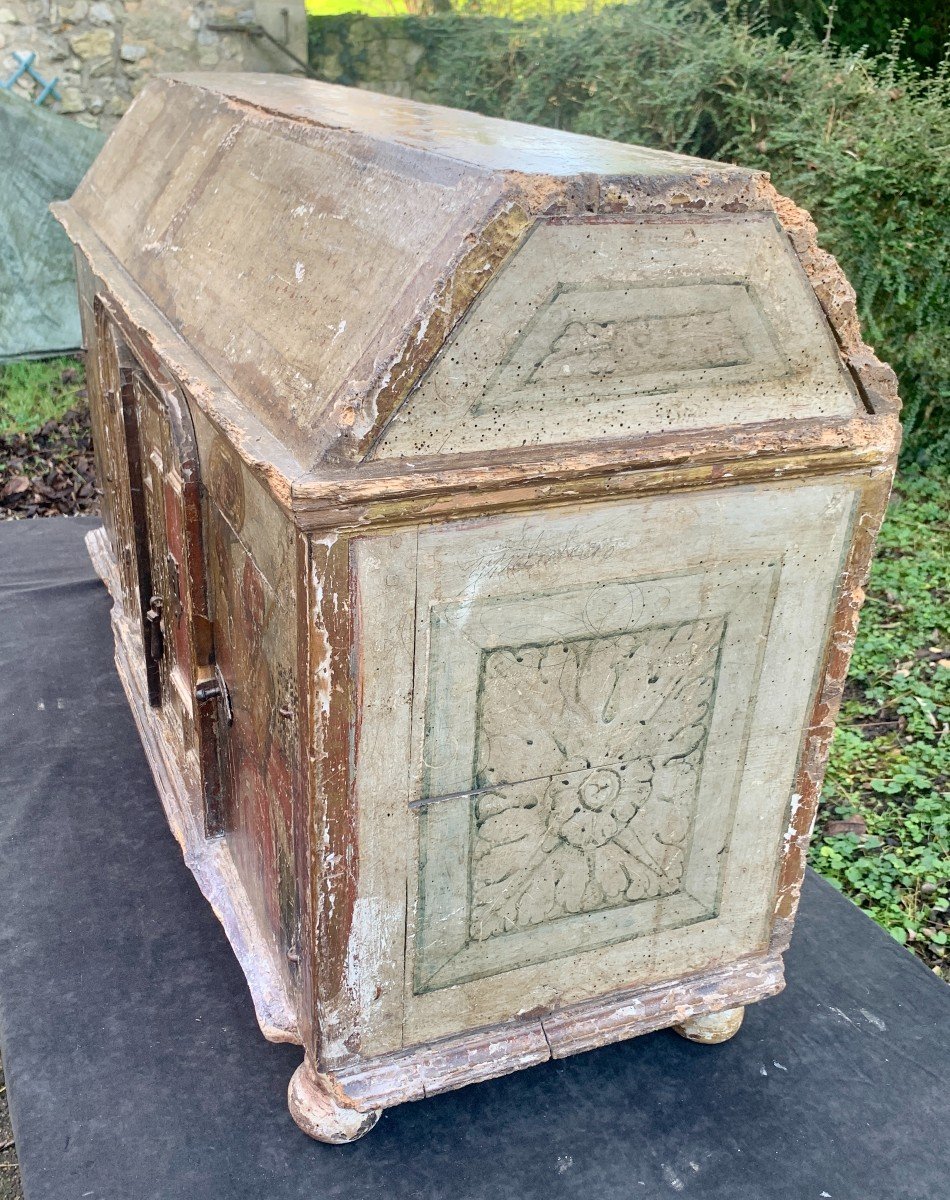


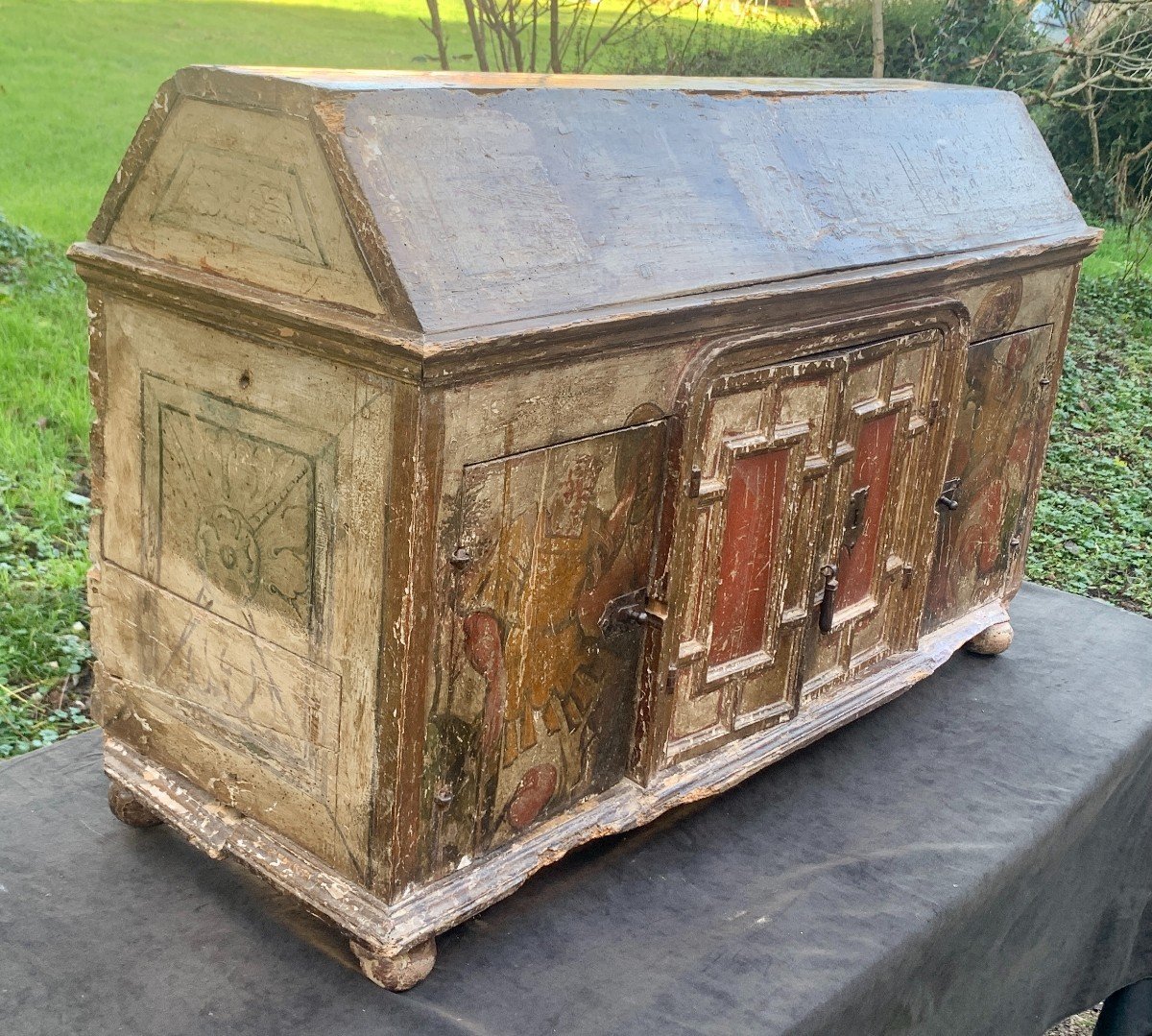
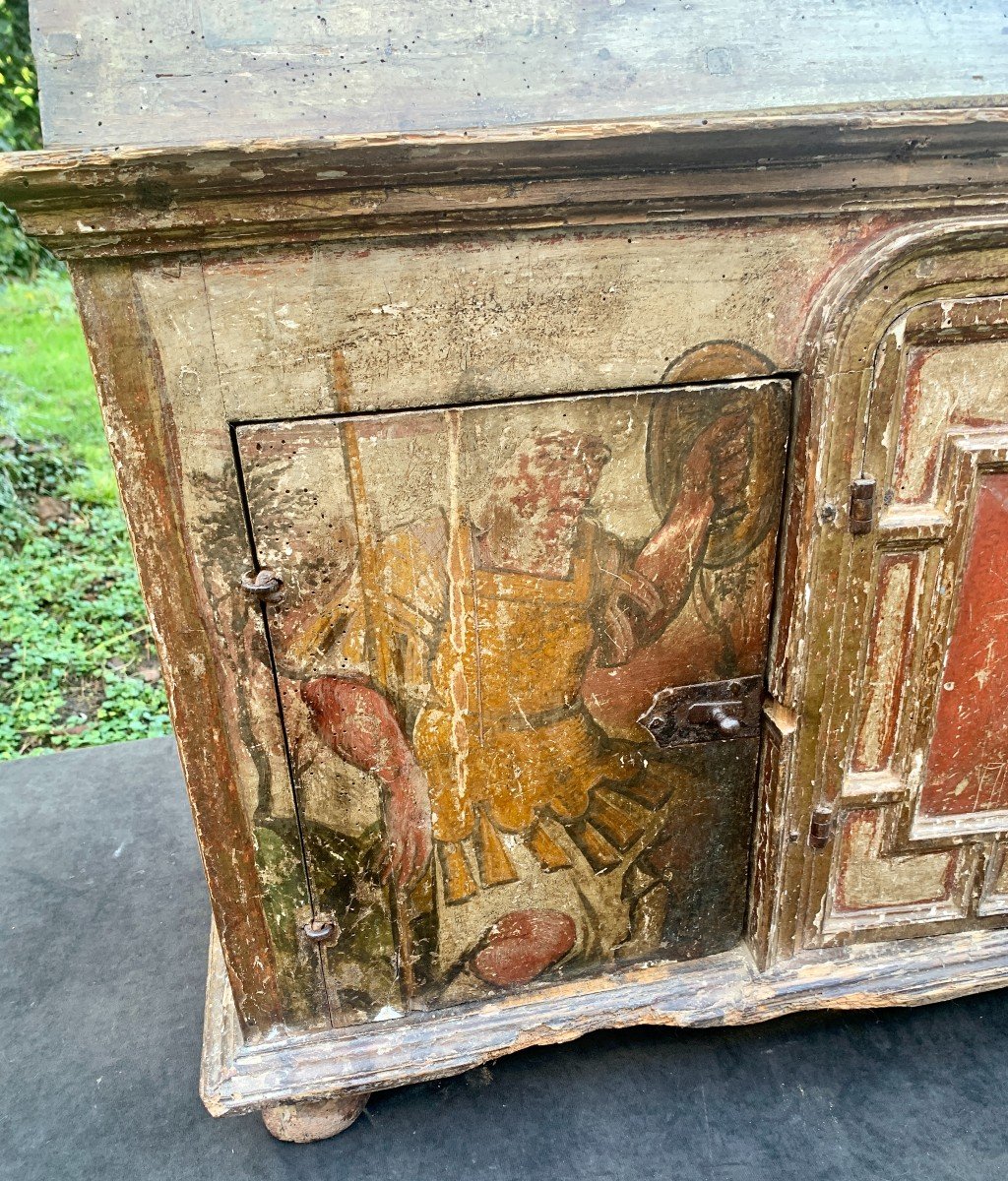

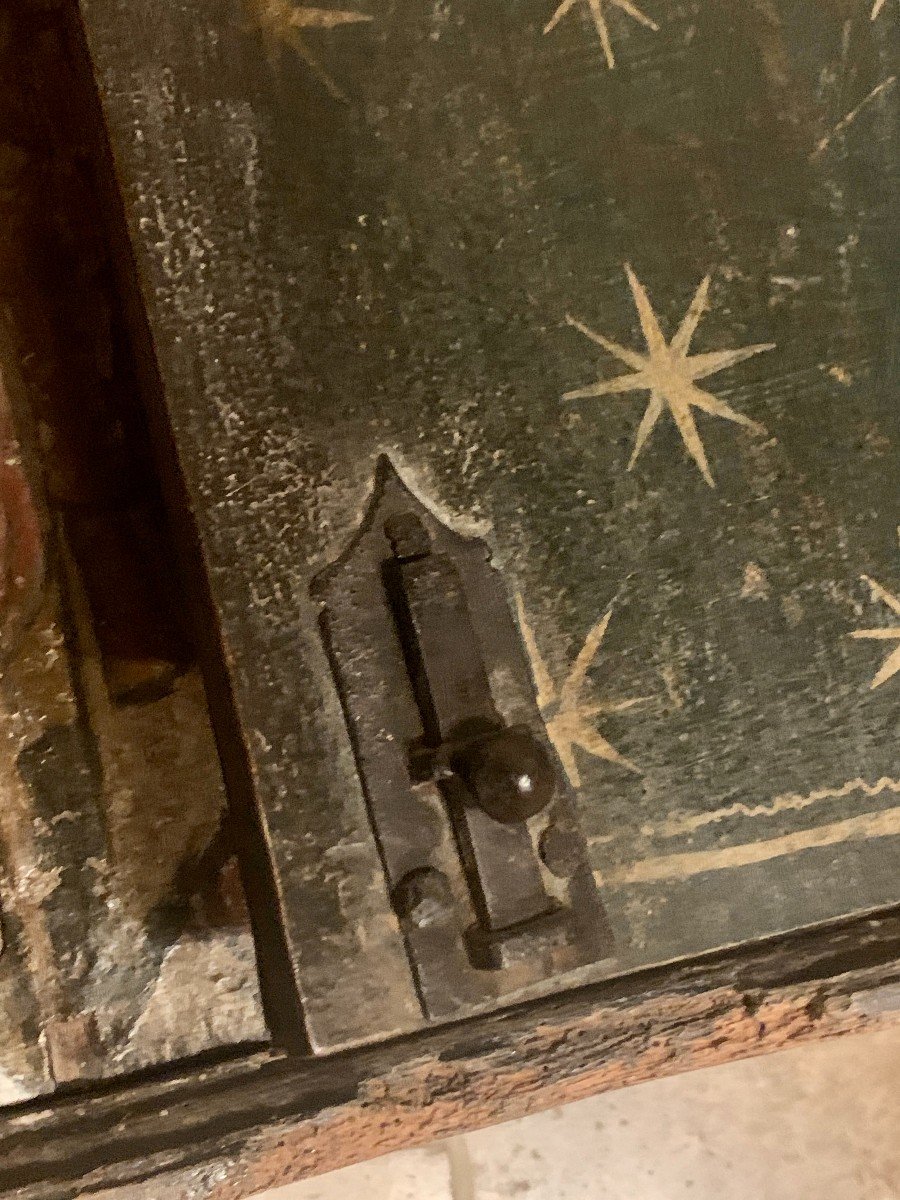


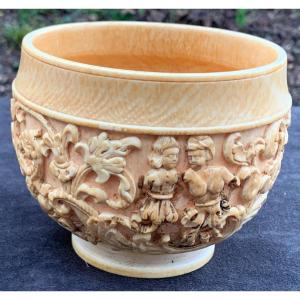





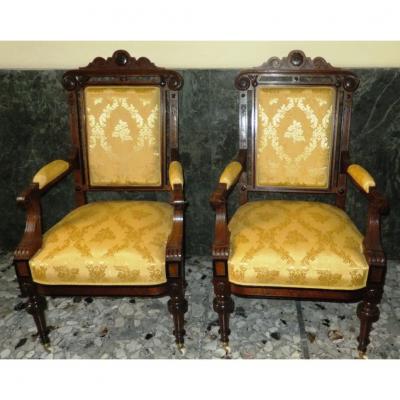


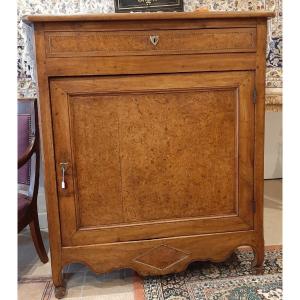




 Le Magazine de PROANTIC
Le Magazine de PROANTIC TRÉSORS Magazine
TRÉSORS Magazine Rivista Artiquariato
Rivista Artiquariato
